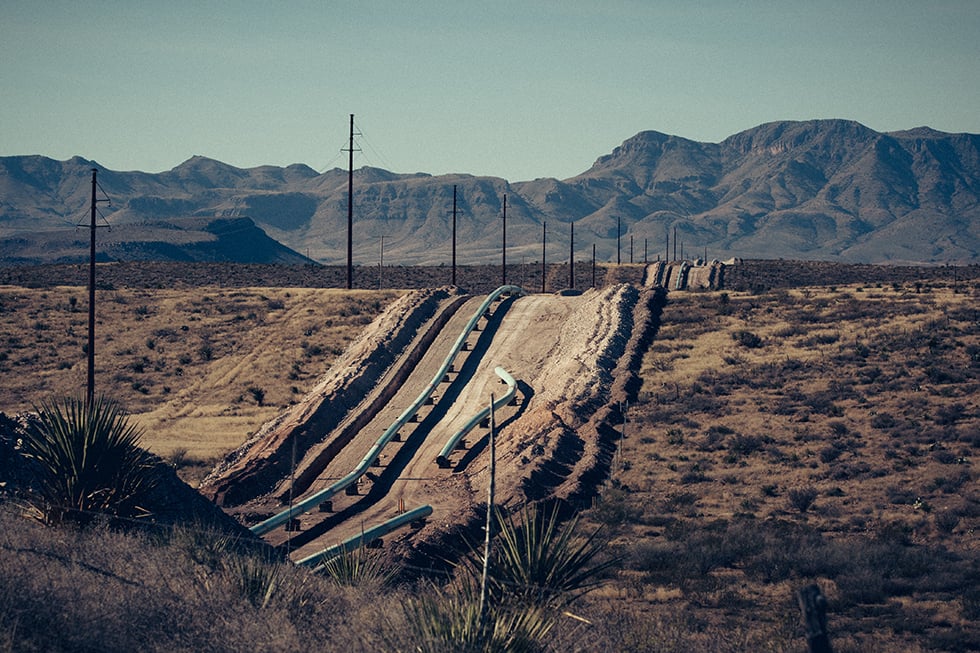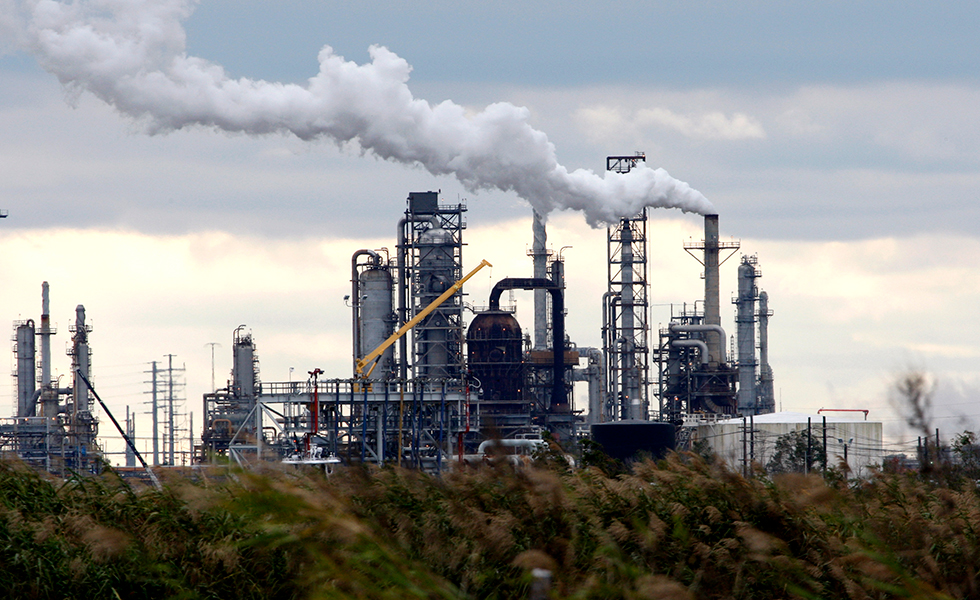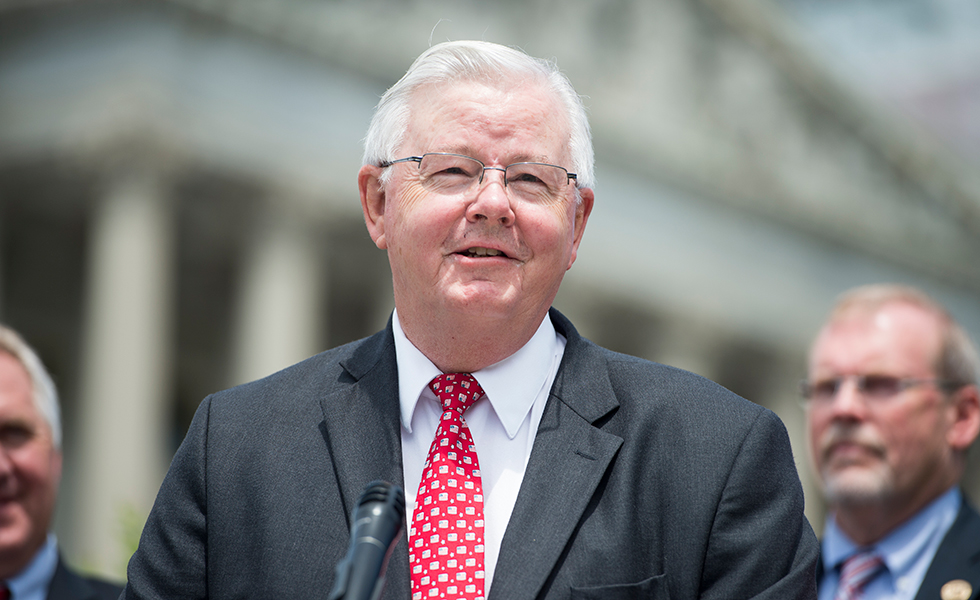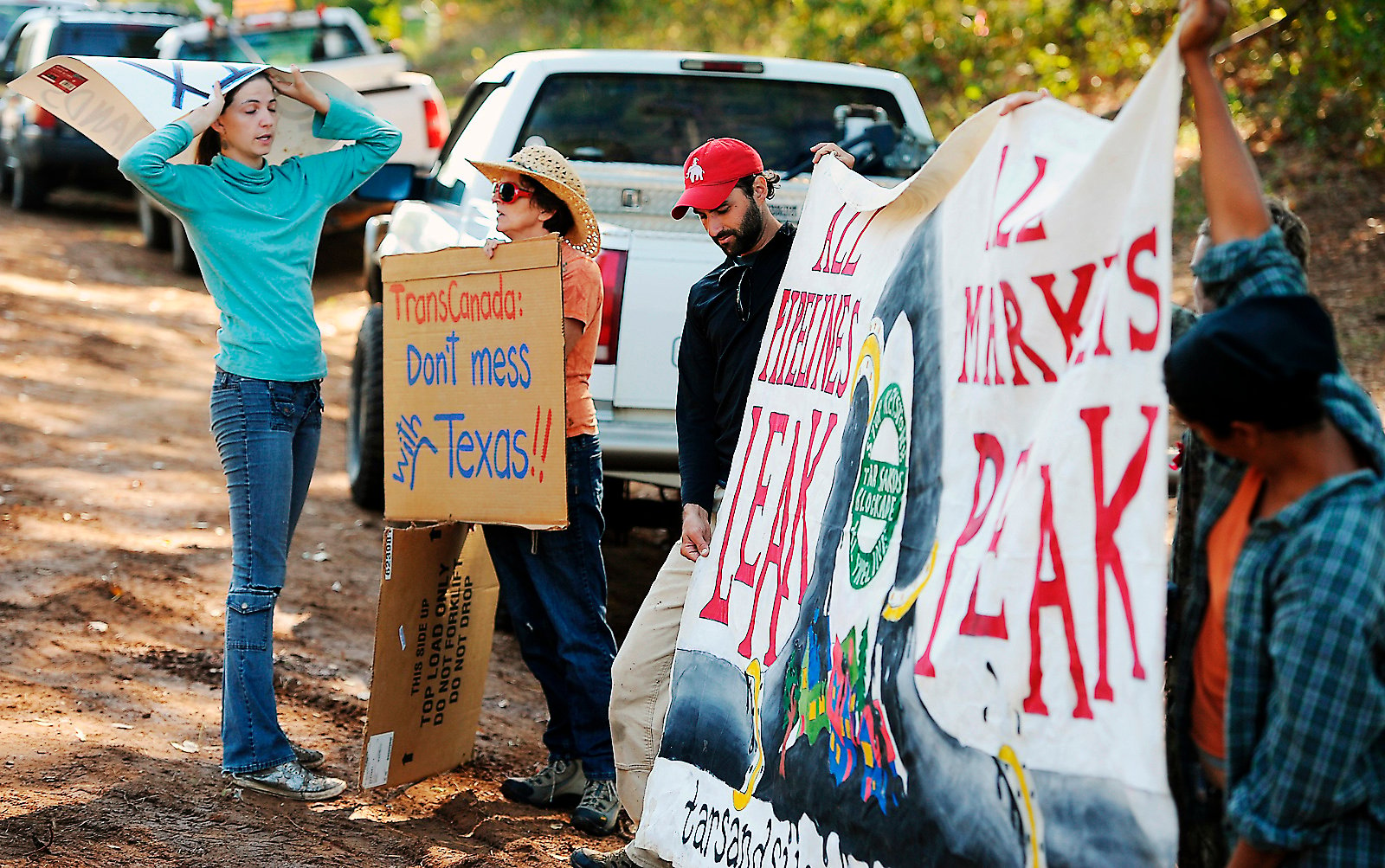
Pipeline Protesters Could Face 10 Years in Prison Under Bill OK’d by Texas House
Two industry-backed bills in the Texas Legislature would charge environmental activists who allegedly engage in civil disobedience at oil and gas sites with a felony.

UPDATE: The Texas House tentatively passed an amended version of HB 3557 on Monday in a 99-45 vote. The author, Representative Chris Paddie, R-Marshall, downgraded the penalty for intentional acts that damage critical infrastructure facilities to a third-degree felony, which carries up to a 10-year jail sentence. People who impede, inhibit or interfere” with those facilities would face a state jail felony — up to two years in jail.
Under a proposal being considered in the Texas House this week, activists who engage in civil disobedience to stop or delay construction on pipelines would be charged with the same level of felony as attempted murderers.
House Bill 3557, by state Representative Chris Paddie, R-Marshall, would increase the penalties and fees for intentional acts that “impede, inhibit or interfere” with the operations of “critical infrastructure,” including electric power facilities, water treatment plants and oil and gas facilities. The bill would go beyond the state’s definition of critical infrastructure to include equipment and projects under construction.
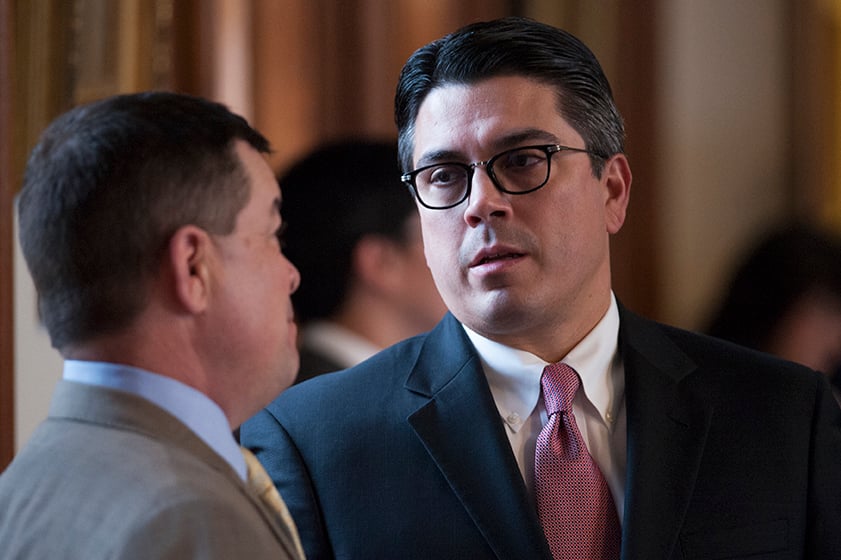
Alleged violators would be charged with second-degree felonies, which carry up to 20 years in prison, under HB 3557. Additionally, individuals would face a fine of up to $10,000 and organizations accused of violating the law would face a fine of $1 million. Violators would also be liable for damages.
So-called critical infrastructure, specifically at oil and gas pipeline easements, has been the target of protests across the state in the last several years. Environmental activists have delayed construction on pipelines including the southern leg of the Keystone XL in East Texas in 2012 and the Trans-Pecos in far West Texas in 2016 and 2017. Denton protesters also took action to delay operations at a fracking site in 2015 after nearly 60 percent of voters approved a fracking ban that was later invalidated by the Texas Legislature.
The new proposal “is criminalizing conscientious, caring people who are the canaries for their communities,” said Lori Glover, co-founder of the Big Bend Defense Coalition, an activist group that mobilized against the Trans-Pecos Pipeline. She and other critics say the measure is unnecessary because laws to protect private property are already on the books.
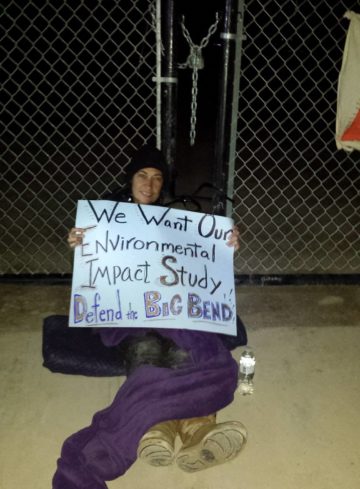
In fact, Glover knows what it’s like to face a felony charge after taking direct action. She was arrested in Presidio County in 2017 after locking herself to pipe-laying equipment at an Energy Transfer Partners work site to delay construction on the company’s controversial pipeline. Glover was charged with an elevated version of criminal mischief at the time since she allegedly blocked gas supply, despite the fact that the pipeline was still under construction. The charge was later lowered to a Class A misdemeanor by the district attorney.
“It was pretty stressful and terrifying,” Glover said in an interview. “It really created a lot of pressure on [me] to accept any lower charge, whatever it was, even if it wasn’t fair. You felt like you had to take it because anything is better than a felony… You get the feeling like there’s no justice.”
Glover traveled to Austin in late March to testify during a committee hearing against the Senate version of the bill, SB 1993, by state Senator Brian Birdwell, R-Granbury. She said she visited several legislators’ offices to lobby against the proposals and noticed that some Democrats seemed to be on the fence. The bill passed out of the House Judiciary and Civil Jurisprudence Committee in a 6-3 vote, with state Representative Victoria Neave, D-Dallas, breaking rank and voting for the bill. Neave’s office did not respond to the Observer’s request for comment.
State lawmakers around the country are advancing similar legislation developed by the American Legislative Exchange Council (ALEC), a corporate-backed group that is the most prolific organization in the country at writing model legislation. Similar industry-backed bills have already passed in North Dakota, Louisiana, Iowa and Oklahoma in the aftermath of the high-profile protests at Standing Rock. Other “critical infrastructure” bills have been introduced in at least 10 other statehouses this year.
“You get the feeling like there’s no justice.”
In Texas, the authors of both the House and Senate versions of the bill have attended ALEC conferences in recent years. Paddie’s political action committee received at least $40,000 from energy companies during the 2018 election cycle, according to the Center for Responsive Politics. Neither Paddie nor Birdwell’s office responded to a request for comment.
The bills could do more than just chill future acts of civil disobedience, critics say. Pipeline opponents and even workers involved in labor disputes might fear simply demonstrating with signs at oil and gas sites, since their protest and presence could be construed as impeding operations.
Indigenous people who attempt to protect native burial grounds in the pathway of oil and gas infrastructure could also be charged, according to Yolanda Bluehorse, a member of the Rosebud Sioux tribe of South Dakota and board member of the Dallas Peace and Justice Center. She also lobbied against the bill at the Texas Capitol, asking legislators whether indigenous people could be charged as felons for protecting their burial plots.
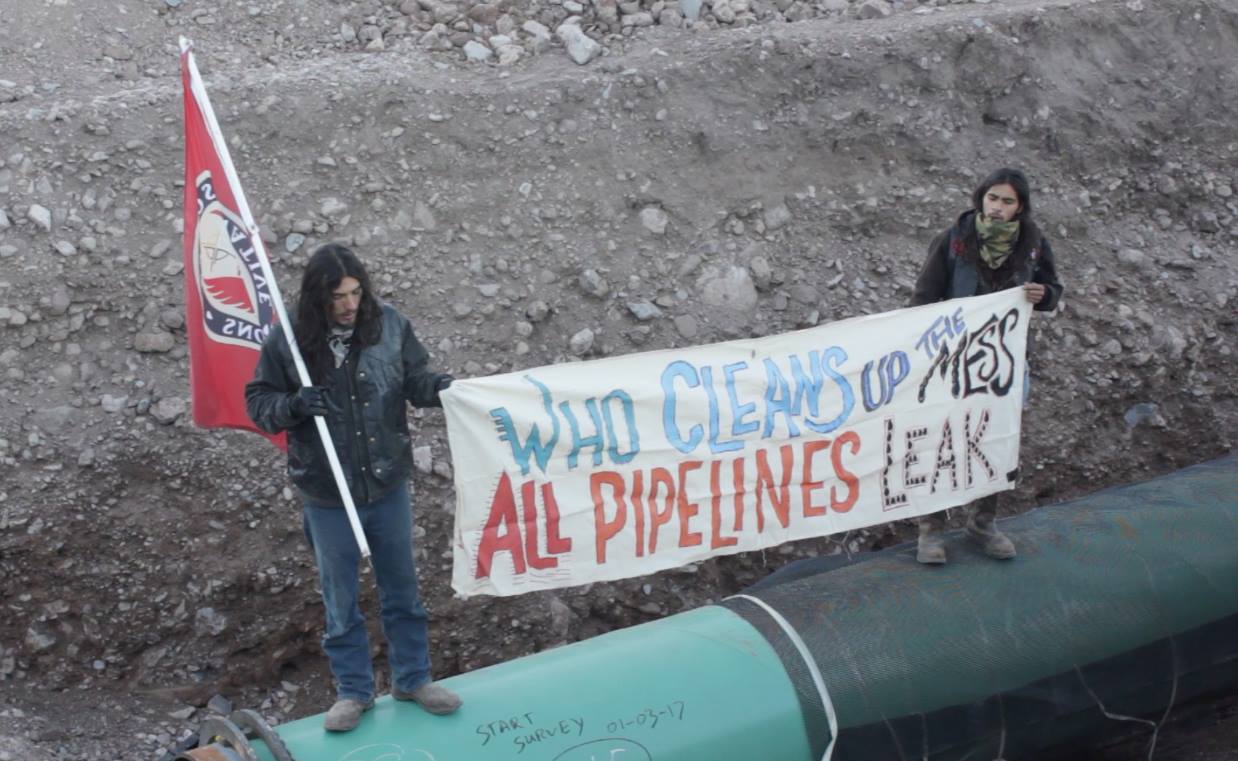
Further, the bills raise significant First Amendment implications not just for protesters, but also for journalists covering pipeline protests, free speech advocates say. They too could be hit with felony charges if their presence is interpreted to interfere with operations — one reason why the Freedom of Information Foundation of Texas registered opposition. Meanwhile, the Texas Oil and Gas Association, the Texas Pipeline Association, Enbridge, ExxonMobil, Chevron, Shell and slew of other energy interests registered support for the bill in committee.
HB 3557 is advancing as environmental organizations fend off other bills this session, including House Bill 2771 and its companion in the Senate, which give the Texas Commission on Environmental Quality authority to issue permits to oil and gas companies to discharge water from fracking operations and gas plant effluent into lakes, streams and riverways.
“I was only under that machine for a couple of hours,” Glover says. “So the proportion of the punishment to the actual inconvenience [to the company], the misconduct, is already outrageous. With this new bill, it really becomes a violation of the Eighth Amendment.”
Editor’s note: The headline of this story changed following the update at the top of the post, which reflects the proposal being downgraded to a third-degree felony through a floor amendment by the bill’s author.
